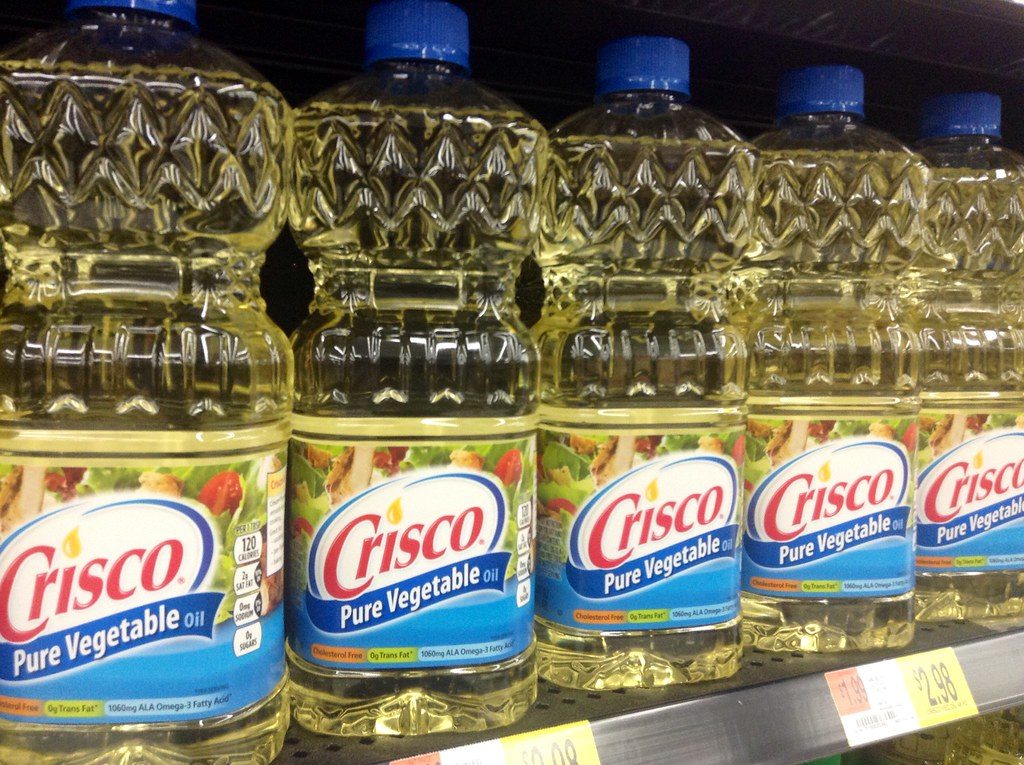
At the store, you might notice the big “Heart Healthy” graphic on the gleaming bottles of vegetable oil. But are they really?
Vegetable oils are shrouded in controversy. Competing studies argue in favor and against using it, making it quite difficult to simply get your grocery shopping done before it’s time to make dinner tonight.
That’s why it’s important to understand a little background on vegetable oils. What you don’t know about vegetable oils is the key to living in your best health.
What are they anyway?
Vegetable oils are fats from plants. You’ll see soy, canola, corn, and cotton as the most popular. In comparison to everyone’s favorite olive oil, which has been pressed for ages, vegetable oils use industrial processing.
In fact, learning about that might make you lose your appetite. Uses of solvents, bleaching agents, and hexane tend to go into the process for creating vegetable oils from the seeds.
These refined oils have become the new standard in our diets. Studies that have attempted to find conclusive evidence that vegetable oils are the cause of cancer, mental illness, obesity and diabetes need more merit before they can be declared official.
Still, a glance back in history reveals that 100 years ago, most people consumed around 20 grams of vegetable oil a day. In modern times, that amount has gone up to 50 grams a day, which is double what it was back in 1970.
Is there a correlation? Again, there’s nothing set in stone but to minimize your risks, you should work with more stable forms of oil for cooking.
Vegetable oils exposed to very high temperatures for long periods are the biggest area of concern. Health experts recommend clarified butter and coconut oil since they stay stable at high heat.
Are you still using vegetable oils? If you’re worried about having too much omega-6 oils in your diet, here are a few ways to cut down your consumption.
– Limit the vegetable oils you use
When shopping for oil at the store, stop buying vegetable oil. You can limit what you consume down to mayo or salad dressing, but it might be best to eliminate it completely. You can make your own mayo and salad dressings that will taste even better than store-bought anyway!
– Order substitutions whenever possible
As you know, when you’re living a healthy lifestyle, you have to be vigilant when dining out. At restaurants, instead of just avoiding fried things, ask about the oils used. Request politely to have your food cooked in coconut oil if it’s possible. Not every place will be able to do so, but it never hurts to ask. For salads, ask for olive oil and vinegar to be sure you’re avoiding that excess vegetable oil.
– No more commercially-baked snacks and treats
If you’ve decided that you would like to live a healthier life by cutting out sugar and refined grains, that’s a great step in a low-carb and healthy direction.
It serves another purpose though because those commercially-made foods tend to have lots of vegetable oils. You’re better off learning hacks to create your own sweet and savory treats at home without added sugars, vegetable oils, or carbs.
Now that you know the dangers vegetable oil can pose for you, you can choose to limit it to ensure your low carb lifestyle isn’t compromised!
